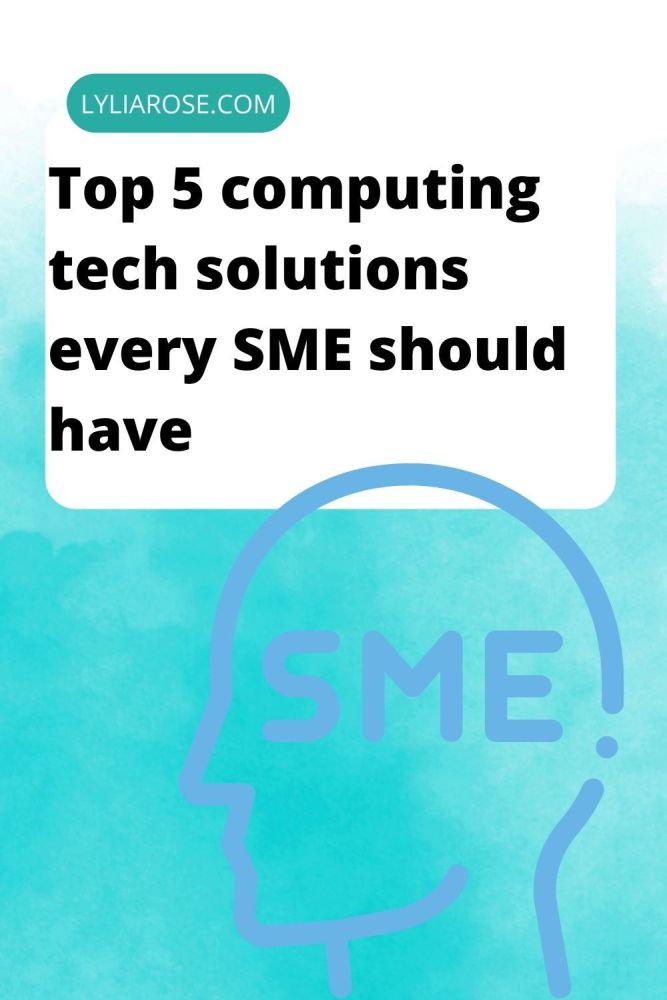Top 5 computing tech solutions every SME should have
Posted on
In the world of digital business, the computing tech that your small to medium enterprise owns will determine your ability to handle complex workloads and diverse customer demands. The right enterprise tech solutions will enable your SME to gain an upper edge against your direct competitors and potentially help you scale your business.
However, there are so many different components, machines, and setups that it can be difficult to know what you might need.
In today’s article, we’ll be covering our top 5 computing tech solutions that every SME should have, or, at the very least, know about.

-
High-quality hard drives (HDDs)
Having enough storage space to meet client demands is vital for any digital business, no matter what niche of digital business you operate within. Storage is and will always be the backbone of any computer system, for, without storage space, you won’t be able to install and use applications, store files, or host server space.
The most obvious SME needing an abundance of local storage space will be hosting companies that rent out servers. Such companies will need to invest in high-quality HDDs such as HP HDDs or even build huge storage arrays to meet current client demands.
However, having just enough storage space is never good, as this can inhibit expansion opportunities. It is always best to have up to 30 or 40% of your total storage free for use whenever you need it.
Don’t let a lack of storage be why you can’t sign new customers. Equally, you should never be buying an expansion after signing a new customer – you should already have the capabilities to cater to their needs ready for rollout.
-
Solid-state drives (SSDs)
While hard drives are effective for providing massive amounts of storage space, they can have limited write and read speeds due to how they process and store their data.
This isn’t too much of an issue if speed isn’t a USP or care for your company, but for most SMEs, it is. The answer to slower write and read speeds is the solid-state drive (or SSD).
An SSD can speed up any workstation or server due to its increased write and read speed. A common practice is to install the operating system of a workstation or server on an SSD to speed up access to critical applications responsible for the correct functioning of your machine.
However, where SSDs make up for in speed, they lack capacity. They may be faster than HDDs, but they will have significantly less storage space per drive, making them an inefficient solution for SMEs that need huge amounts of storage.
-
Powerful CPUs
A CPU (or central processing unit) is like the brain of a computer, and it is responsible for all the calculations responsible for running applications on whatever kind of machine you have, be it a server or workstation.
Having a powerful CPU is important as it can expand the capabilities of your servers or workstations as well as speed up the rate at which they process information. This, in turn, will create more efficient machines capable of complex tasks.
Generally, a machine will be limited to its overall processing power, and the CPU is a huge contributing factor to a machine’s processing power.
Just note that when upgrading a CPU, you’ll need to ensure you have a motherboard with the correct chipset to run it!
-
Top range PSUs
A PSU (or power supply unit) does what it says on the tin! It supplies power from the mains to your machine. Different kinds of PSU units, such as modular PSUs, allow for a plug-and-play experience when building your machines.
However, the rating of the PSU is very important to consider. The higher the rating of a PSU, the longer it will last, and the more efficient the model of PSU will be.
The ratings are:
-
80 PLUS
-
80 PLUS Bronze
-
80 PLUS Silver
-
80 PLUS Gold
-
80 PLUS Platinum
-
80 PLUS Titanium
For a top-of-the-range model for enterprise solutions, you’ll want to look at PSUs with a certification of 80 PLUS Gold or higher. These will provide the best value for money versus efficiency for commercial operations.
-
Offline storage
A hugely beneficial aspect that many SMEs overlook is adequate offline storage solutions. Having offline storage has many advantages, such as protecting sensitive data from hostile attackers and crucial data from corruption via power surges. Offline storage of sensitive data will also prevent unauthorised access to said data from within your own company.
The most common method of creating offline backups is loading up an external hard drive with data and keeping it under lock and key locally within an office. If you need larger offline storage solutions, loading up an internal hard drive and disconnecting it from its host machine is another option.
Never underestimate the benefits of offline storage!

